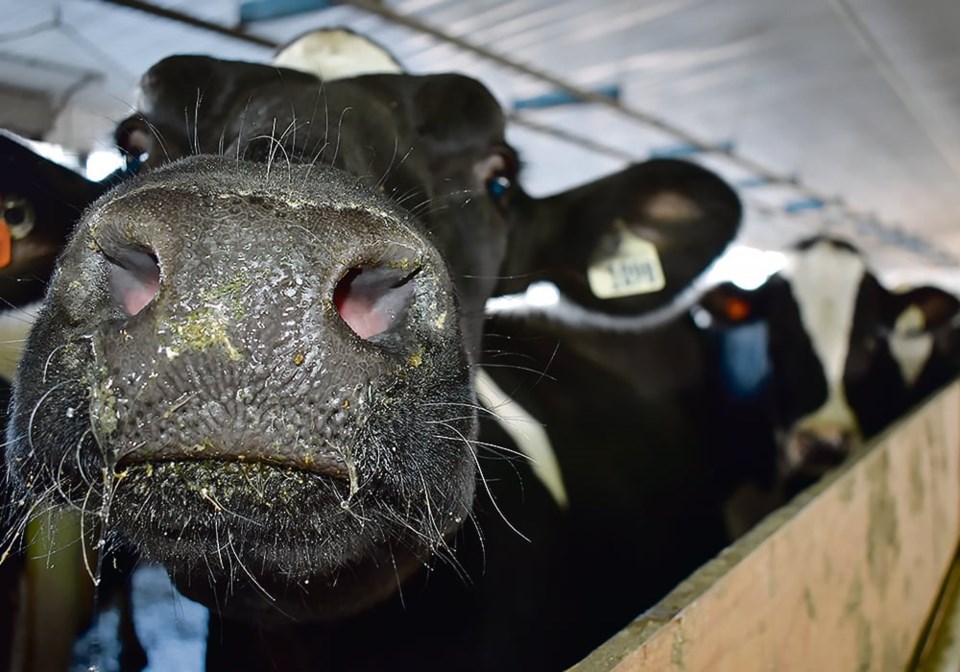WESTERN PRODUCER — Ottawa is making $12 million available to help find ways to reduce methane emissions from cow-calf, dairy and feedlot operations.
The Agricultural Methane Reduction Challenge is part of the federal government’s plan to reduce overall methane emissions 40 to 45 percent below 2005 levels by 2030 and to be net-zero by 2050.
The challenge aims to “advance innovative, low-cost and scalable practices and technologies that contribute to the reduction of methane emissions from cattle and livestock,” said a news release.
Described as the first of its kind, the challenge will accept applications from producers, businesses, not-for-profit organizations and others until Feb. 7, 2024.
An independent external review panel that includes ranchers, academics, stakeholder representatives and others will assess the applications at the first stage and determine which applicants will move on to a second stage.
Twenty eligible applicants in stage one will receive up to $250,000 each. Second-stage semi-finalists, to be announced next summer, are eligible for 10 awards of up to $500,000 each. Two final winners will receive $1 million each.
All the semi-finalists will also receive mentorship and training.
The government said no single solution will work because of regional conditions and soil types.
“Solutions to the challenge could include novel feed additives, improvements to existing feed additives, improved forage quality and feed efficiency, novel grazing practices” and more, said information provided on the challenge website.
Methane is a more potent greenhouse gas than carbon dioxide.
Agriculture was responsible for 31 percent of Canada’s methane emissions in 2021, and 86 percent of those emissions came from enteric fermentation from cattle.
At the same time, cattle are helping to preserve about 1.5 billion tonnes of carbon contained in soil and protecting more than 60 endangered species in grasslands.
The government acknowledged Canada is one of the largest exporters of sustainable cattle in the world.
The challenge is the latest in the government’s efforts to tackle emissions in agriculture. It has the On-Farm Climate Action Fund and the Agricultural Clean Technology Program, which are pumping more than $1 billion into mitigation measures for greenhouse gases including methane.
A livestock feed management protocol is in development under the Greenhouse Gas Offset Credit System, and protocols for manure management and anaerobic digestion are planned for the future.
The methane strategy noted that agricultural methane emissions have dropped by 20 percent since 2005 in conjunction with declining cattle numbers. Productivity improvements also play a role.
The livestock industry has already set voluntary emissions reduction targets.
For example, Canadian Beef Advisors, representing seven national beef organizations, aims to reduce emission intensity from primary production by 33 percent, and Dairy Farmers of Canada wants to reach net-zero by 2050.
Federal agriculture minister Lawrence MacAulay said partnerships with the sector will move Canada further ahead faster.
Nathan Phinney, president of the Canadian Cattle Association, said the country’s beef producers are already environmental leaders.
“The new Agricultural Methane Reduction Challenge is well-aligned with our beef sector’s 2030 goals, and we look forward to continuing to work with government to find innovations to help further reduce beef cattle’s emissions intensity,” he said.
Dairy farmers do not shy away from new technology that will improve production and protect the environment, added DFC president David Wiens.
SASKTODAY.ca is Saskatchewan's home page. Bookmark us at this link.




